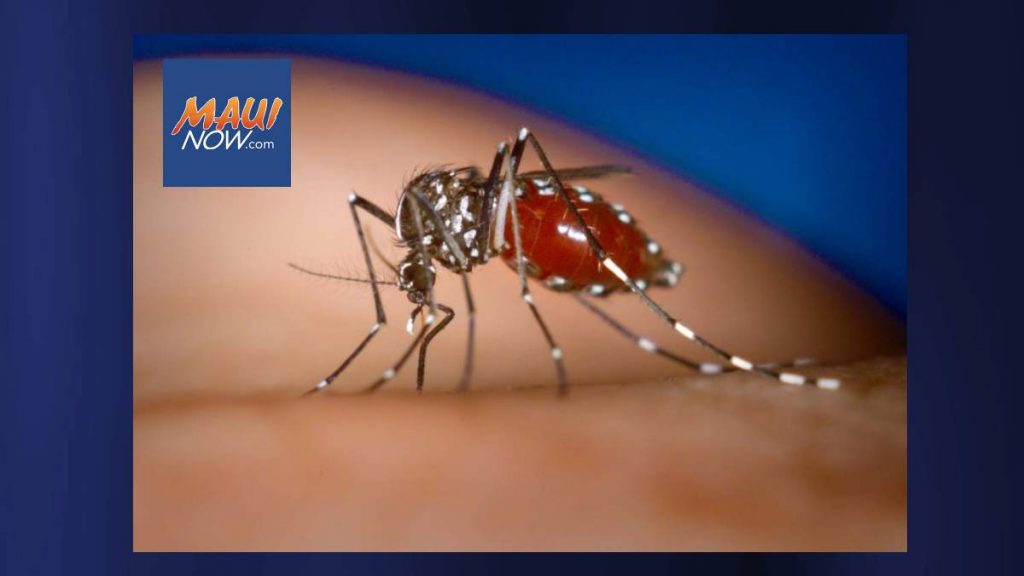DOH reports second travel-related dengue case in Hawaiʻi in as many months

The Hawai‘i Department of Health has received a report of a travel-related dengue case in Hawai‘i in an individual who had recent travel to countries where dengue is commonly found.
In late December, the DOH reported receiving a separate report of a travel-related dengue case in Hawai‘i. Both cases were in individuals on the island of O‘ahu, who had recent travel to countries where dengue is commonly found.
The last confirmed case of locally acquired dengue in the state was in 2016.
Dengue virus is spread from person to person by mosquitos. In areas of suspected or confirmed dengue, Hawai‘i DOH personnel conduct inspections and mosquito-reducing activities. Reducing mosquito populations reduces the chances of dengue being transmitted to other people.
The DHO advises that in areas without reported dengue cases, eliminating mosquito breeding sites in and around your home is a good practice. Mosquitos only need small amounts of standing water to breed. Common breeding sites at home include buckets, water catching plants, small containers, planters, rain barrels, or even cups left outside. Simply pouring out containers of standing water eliminates the potential for mosquito breeding.
While Hawai‘i is home to the type of mosquitos that can carry dengue, the disease is not established (endemic) here in the state, and cases are currently only seen in travelers.
Anyone who travels to an area with dengue is at risk for infection. Some countries are reporting increased numbers of cases, so it is important 4-6 weeks before you travel to review country-specific travel information for the most up to date guidance on dengue risk and prevention measures for that country.
Travelers returning from an area with risk of dengue should take steps to prevent mosquito bites for three weeks, and if symptoms of dengue develop within two weeks upon return, should seek medical evaluation.
Symptoms of dengue may be mild or severe and include fever, nausea, vomiting, rash and body aches. Symptoms typically last two to seven days and although severe and even life-threatening illness can occur, most people recover after about a week.
For more information, visit the Disease Outbreak Control Division website and Vector Control Branch website.
Editorʻs note: This story was updated to include information on where the individual in the latest case resides following confirmation from the state Department of Health.










